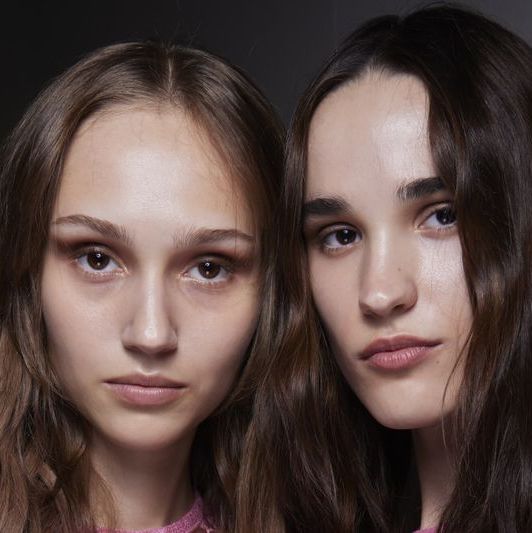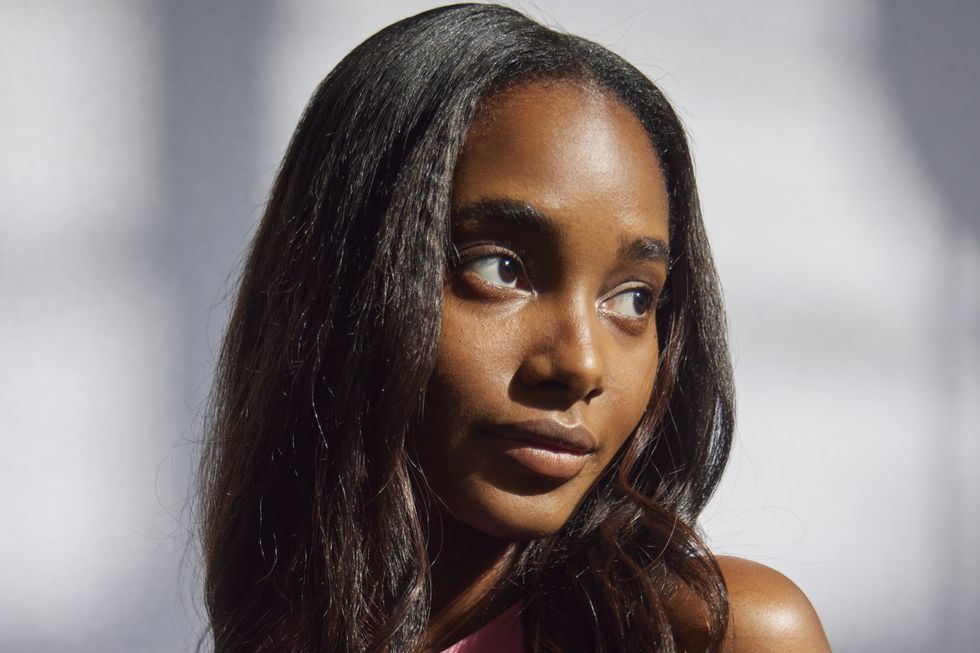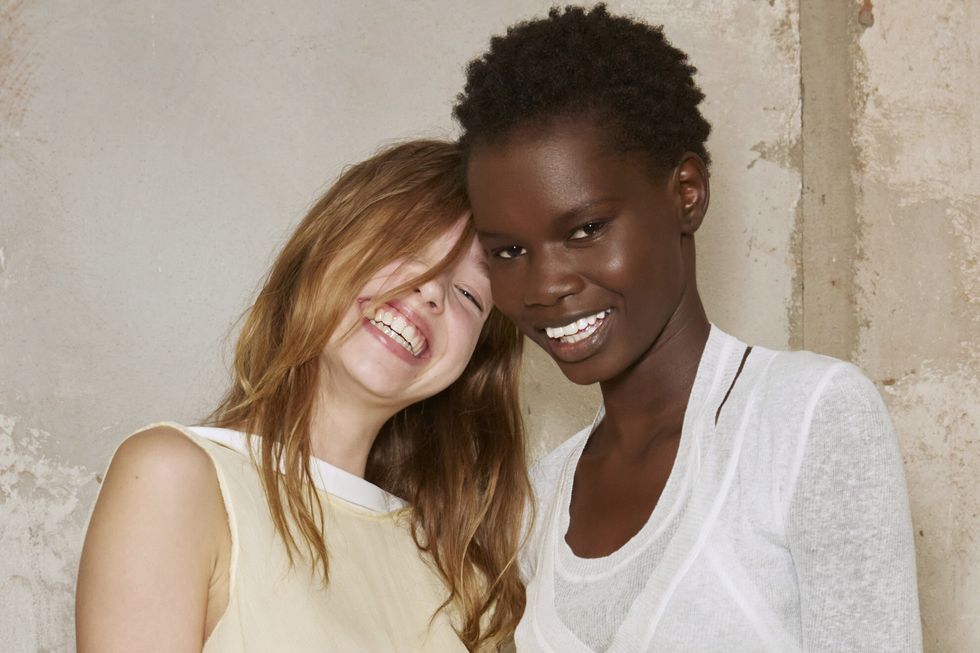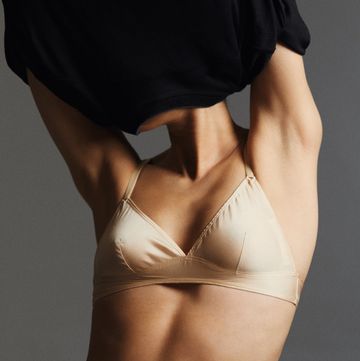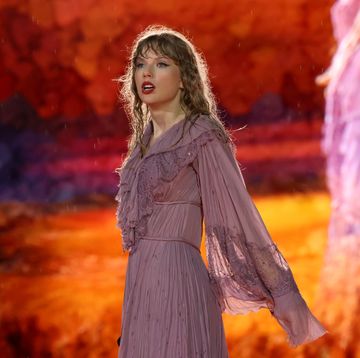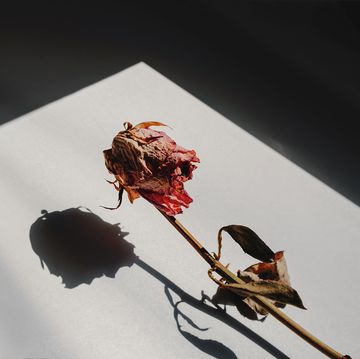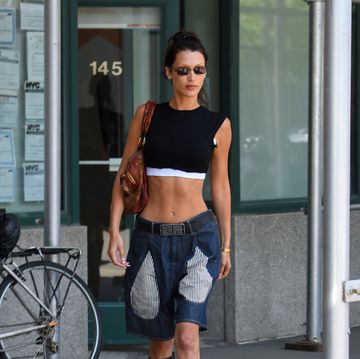If you enjoy scrolling on TikTok as much as I do, you might have noticed that the internet has been alight with talk of 'Sephora teens' for weeks now. The topic of interest, however, doesn't focus on viral bob haircuts or 'latte make-up' trends, rather their ‘anti-ageing’ skincare routines. By the accounts of retail workers who have been sharing their personal experiences of how pre-teens and young teenagers are shopping, Gen Z and even those younger are spending hundreds of pounds on skincare in a bid to stay young forever.
Shopping for skincare online, of course, isn’t new behaviour. Ingredients like retinol and exfoliating acids designed to deliver anti-ageing benefits can be found in many a ‘get ready with me’ video with products going viral every day, but never have pre-teens been driving the conversation. In fact, the rising trend is being dubbed ‘prejuvenation’ - in other words, delaying visible signs of ageing for as long as possible - and is the result of the likes of the Kardashian offspring posting their extensive skincare habits online, as well as a host of TikTokers revealing the ingredient lists that make up their 10-step routines. According to a recent study by Klarna, Gen Z (those born between 1996 and 2010) now spend more on skincare than any other generation, but Gen Alpha (2010 to 2025) aren't far behind.
‘The concept of "prejuvenation" has emerged as a new approach to ageing among young people - most notably Gen Z - in a bid to prevent damage or inevitable ageing skin concerns before they happen,’ explains Hannah Mauser, Beauty Strategist at trend forecaster WGSN. Google searches for ‘skincare for tweens’ have now risen by +196% and the average US tween's (aged 10-12) spending has grown by 23%.
FIND OUT MORE ON ELLE COLLECTIVE
As you might have guessed, social media is at the forefront of the growing trend. ‘Of course, social media has had a role to play and evidence suggests that age anxiety is rising among younger generations more than ever before,’ she warns. ‘Hyper-realistic ageing filters on TikTok have acted as a key driver by digitally portraying what a users’ skin may look like decades down the line.' These filters apply realistic ageing complete with wrinkles and lines to a users’ face to portray what they might look like in the future. When it first landed on TikTok, entrepreneur Kylie Jenner was among the famous faces horrified by their reflection. ‘I don’t like it. I don’t like it all,’ she shared.
While this growing fascination with youthful skin is adding to ageist attitudes and fuelling unrealistic beauty standards at such a young age, it also begs the question: could the rise of ‘prejuvenation’ among pre-teens actually be a concern for their skin, too? ‘Children's and pre-teen skin is typically a lot more delicate and sensitive than that of adults, and using strong skincare ingredients especially at a young age can pose potential dangers such as skin sensitivity, impaired skin barrier function, allergic reactions, photosensitivity and risk of overuse,’ warns SK:N Clinics Dermatologist Dr. Aiza Jamil.
But that doesn't mean that a skincare routine is out of the question. Firstly, a skincare routine will look different depending on an individual's age. For instance, those aged six to 12 could adopt basic skincare habits, ‘like regular cleansing, moisturising, and sun protection’, while those in adolescence (13 to 19) and prone to hormonal changes which lead to acne may look to spot treatments, notes Dr. Jamil. The key, really, is to focus on the basics. ‘Less is more with young skin - help your tween or teen stick to a minimalist routine and steer clear of using skincare as entertainment,’ agrees Dr. Sam Bunting, a skin expert and founder of her eponymous skincare brand. 'There is simply no need for any child to use an eight-step skincare routine,’ she urges.
Consultant dermatologist, Dr. Mary Sommerlad, agrees. ‘An ideal teenage skincare routine would consist of a gentle water-based cream cleanser in the morning, and if the teenager is blemish-prone, they could opt for a gel-based cleanser that contains salicylic acid followed by a hydrating sunscreen with SPF30-50.' In the evening, she recommends removing make-up (if used) with micellar water, a gentle water-based cleanser and light facial moisturiser.
A simple and effective routine is what new teen-focused brands aim to deliver. ‘Many of the brands we see making waves in the tween and teen skincare space now, like Indu, Gryt and Rile, are acting as building blocks for skincare-curious teens via 2-4 skincare staples: a face cleanser, moisturiser, sunscreen and maybe a serum,’ agrees Mauser. Indu, a new name designed specifically for teenagers and backed by some of the most powerful names in beauty, spotted a gap in the market for a brand that catered specifically to teens. ‘We spoke to over 2,000 teenagers across the UK and America when researching the brand,’ recalls co-founder, Aaron Chatterley. ‘It was amazing how often we might have second guessed incorrectly what teens actually want and need. What was really clear was that they were buying products which were formulated for a much older audience and using ingredients that were at best ineffective and at worst harmful to their young skin.’
Despite an audience who thrives on newness, skincare simplicity is at the core of 16-year-old TikToker Ami Charlize's content. 'My routine includes a cleanser, serum and moisturiser. It’s very basic and I’ve stripped it back completely.' Nikki Lilly, who has been creating content online since she was eight and has a TikTok audience of over 9 million, has a similar attitude. 'These pre-teens are spending a fortune on a "miracle cure", but if they focused on finding an affordable routine that worked for them, they wouldn’t need to.'
‘When it comes to teens and beauty’s newest consumer, Gen Alpha, it's no surprise this truly digital native, hyperconnected cohort is gaining interest in skincare at an earlier age simply due to their vast exposure to routines and products on social media,’ says Mauser. 'The focus here isn’t so much on "prejuvenation" or anti-ageing specifically, but helping these young beauty enthusiasts build healthy, manageable skincare habits,' she says.
Caroline Hirons, a skincare expert and Skin Rocks founder, agrees that the pursuit of ‘prejuvenation’ really isn't the driving force for the spending habits of teens right now. ‘Teens (those under the age of 19) don’t want the clinical; they want the pink bubblegum. This isn’t an educational piece; they’re buying things that look pretty. If this was about anti-ageing, they’d be wearing SPF every day and they’re not.’
Since all of the product discovery is happening on TikTok or in-store, another question being raised is how to educate tweens on the dangers of excessive skincare or using the wrong ingredients and whether the onus should be on their parents. Hirons suggests to parents to give them a basic routine and saying a firm no to 'all the fancy stuff' they don’t need. 'If they’ve got acne, psoriasis, rosacea, go see a doctor and take those concerns seriously, because it’s debilitating mentally. But for your average 10-year-old who’s out shopping and has asked for £50 to buy skincare? Sit down. Get a Saturday job. You won’t want to use two months’ wages on a pot of cream,’ she concludes.
ELLE Collective is a new community of fashion, beauty and culture lovers. For access to exclusive content, events, inspiring advice from our Editors and industry experts, as well the opportunity to meet designers, thought-leaders and stylists, become a member today HERE.
